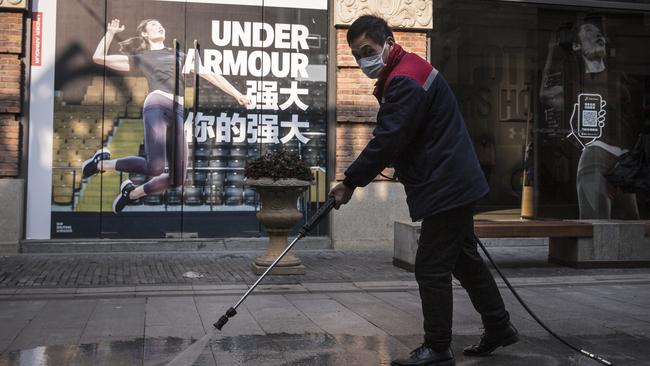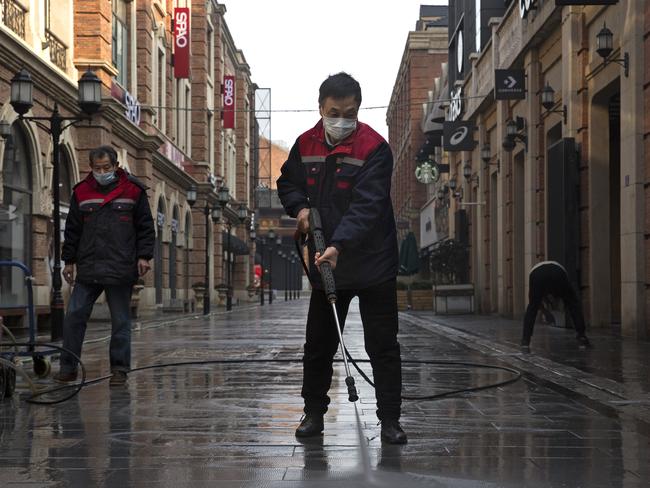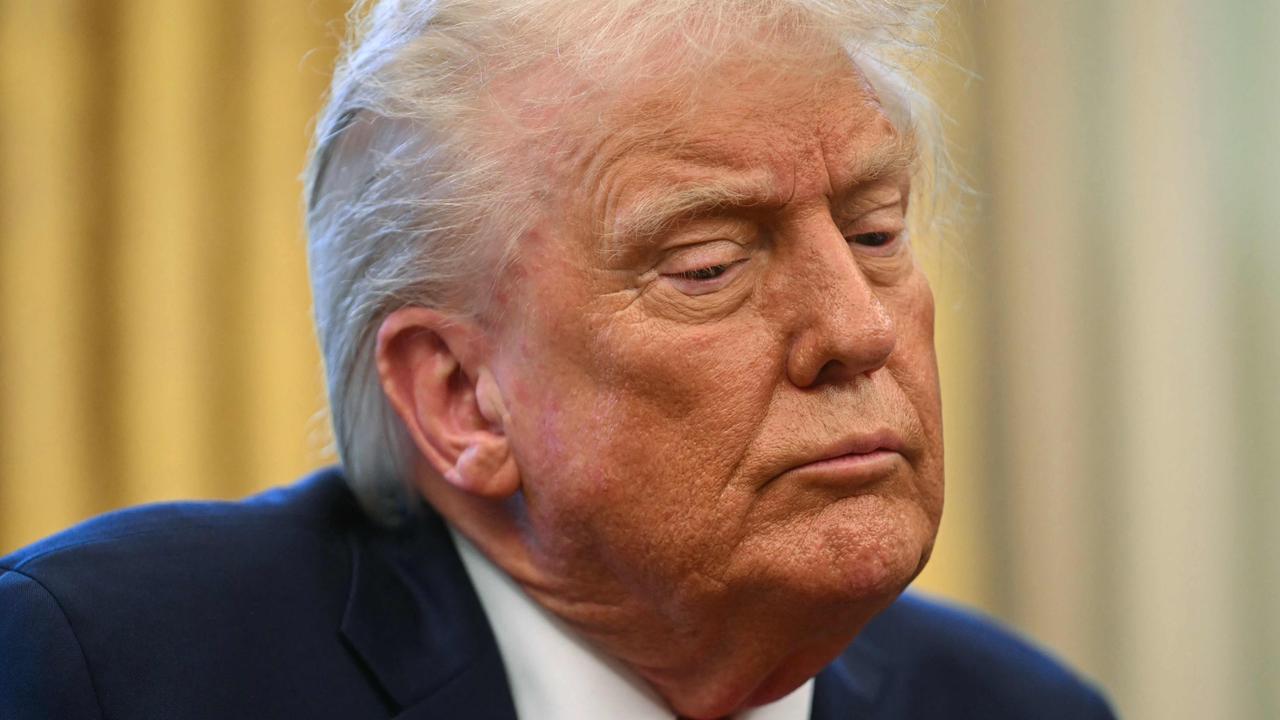Charles Wooley: World now catches more than just a cold when China sneezes
It used to be when the US economy suffered a decline the economic affliction went global. That expression is doubly apt today with China. But the difference is now when China sneezes the whole world catches coronavirus and an economic downturn.

Opinion
Don't miss out on the headlines from Opinion. Followed categories will be added to My News.
AN AMUSING mate of mine just sent me this text: “Funny. As I was leaving Coolangatta airport a female ABC reporter asked for an interview. ‘Do you feel uneasy travelling with the coronavirus around?’
“I replied, ‘I am already infected. I had 12 Coronas last night and woke up crook.’ She completely lost it and fell over laughing.”
We might all need such grim humour to get through the difficult times ahead.
Back when the US was the indisputable driving force of the world economy it was always said, “When America sneezes, the world catches a cold”.
The implication was that whenever the US economy suffered a decline, the economic affliction was sure to go global.
The expression is doubly apt today with China, our pre-eminent trading partner. Now read: “When China sneezes the whole world catches coronavirus. And an economic downturn.”
The problem is that China is prone to sneezing. Unless the Chinese government curbs the live wild-animal meat trade conducted in medieval conditions in “wet markets” where snakes, civets, bats and poultry are held together in shockingly insanitary conditions, then nothing will change. New diseases will continue to cross the species barrier from out of the wild to prey on the human meat mass of the whole planet.

I have seen these places. From a television journalist’s point of view, they are compellingly picturesque, as third world poverty so often is. But the bizarre charm fades when you realise the squalor and disease of a Wuhan live animal market is only a 14-hour plane ride to Australia.
It is presumably one benefit of totalitarianism that the Chinese government can completely lock down cities like Wuhan, the size of London or New York. Imagine trying to do that in Australia where Chairman ScoMo is neither revered nor feared.
The question is whether the Chinese government, which might be more feared than loved, can risk the relationship with hundreds of millions of compliant, essentially peasant folk, and shut down a traditional way of life?
For so many Chinese the only fresh chicken is a live one, and that is much to the advantage of the mutating influenza virus.
Scientists have speculated that the novel coronavirus might have crossed species barriers from snake to poultry to human.
China has come a long way in a short time, but forcing 21st century food hygiene on a traditionalist people might be a step too far. In which case, expect the present frightening catastrophe out of China not to be the last.
Meanwhile, this week economists bewailed that the Australian economy faced a coronavirus hit of up to $13 billion for the first half of the year. Some of that is a result of our closing the door on travellers from China.
Given that World Health Organisation scientists have declared a global emergency, surely most people would sensibly prefer a recession to a viral epidemic — though for weeks we have feared winning the jackpot on the Wheel of Misfortune and copping both.
This was always a reasonable expectation with infectious disease experts warning from the outset, “It isn’t a matter of if but a matter of when”.
It is only a coincidence in these scary times that I have developed a declining interest in flying.
Climate change activist Greta Thunberg would applaud, because mine must be one of the largest accumulated carbon footprints in the state.
But this disaffection with air travel is less environmental and more an emotional state derived over a very long time.
Moving house recently, I came across my old passports and counted, over the past three decades, 70 trips to London, 60 to New York and again to LA, and further hundreds spread across the world from Asia, Africa, South America, Europe, to the islands of the Pacific, the Atlantic and the Indian Ocean.
High in the Arctic and Antarctic circles I have been close to both the north and the south poles — “bipolar” perhaps?
Could such extreme travel result in a disorder with mood swings ranging from depressive lows to manic highs?
Depressive are the endless flight delays in chaotic transit lounges where sometimes days are wasted in airport detention, in at times filthy, fetid and downright frightening dystopic third-world dictatorships.
Then all of that is magically redeemed by the manic highs: spellbound by the oceanic sandy emptiness of the central Sahara or struck speechless under a blazing aurora in remote Svalbard.
I am neither complaining nor ungrateful. Professional travel has given me too many extraordinary experiences and sights to bring to memory here in a few hundred words.
I have been blessed and I have seen the best and the worst that our time has to offer.
Whether witness to human triumph or depravity, I wouldn’t have had it any other way.
But today, from the sand dunes above the surf at my end of the Earth down Dodge City way, I watch the planes fly out and am happy not be aboard any of them.
The truth is, travel has become travail. I am sick of it even before I get sick from it.
Unless of course they call me tomorrow and ask me to go to Siberia.
I’ve never been there. At least not that I can remember.



